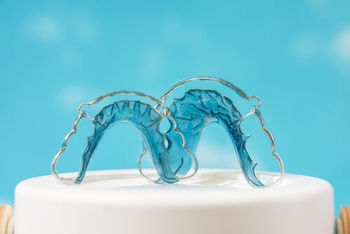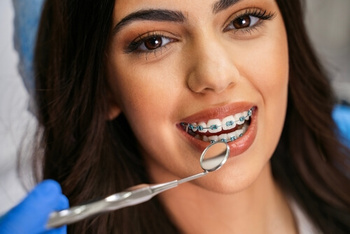After completing your braces treatment, you might feel like the hard part of your orthodontic journey is over. However, there’s one more essential phase that can determine whether your orthodontic results last: wearing your retainer.
So, the big question many patients ask is: Do you have to wear retainers forever after braces? The short answer is yes, in some form. But before you panic, let’s unpack what this actually means and how it affects your long-term dental care.
Why Do You Need to Wear a Retainer After Braces?
Braces shift your teeth into a new position by applying gentle, controlled pressure over time. Once they’re removed, your teeth aren’t immediately fixed in their new position. Instead, they need time to stabilise as the surrounding bone and ligaments adapt to the change.
Without a retainer, teeth can slowly drift back to their original positions, a process known as orthodontic relapse. That’s why most dentists recommend wearing a retainer as soon as your braces come off.
 Do You Really Have to Wear Retainers Forever?
Do You Really Have to Wear Retainers Forever?
Technically, yes. To some extent, you need to wear retainers indefinitely to maintain the position of your teeth.
Initially, you’ll likely wear your retainer full-time (typically for a few months to a year). Over time, your dentist may reduce this to nighttime wear only. But if you want your teeth to stay straight long-term, occasional retainer wear will need to be a part of your routine, even years after your braces treatment has ended.
What Happens If You Stop Wearing a Retainer?
If you stop using your retainer, your teeth might gradually start moving out of alignment. This can happen gradually, sometimes so subtly you don’t notice until it’s too late.
Teeth have a “memory”, meaning they can move back to their old positions if not held in place. Even after years of stability, natural changes in your mouth, such as jaw growth or pressure from chewing, can affect alignment.
Types of Retainers: What Are Your Options?
Your dentist will prescribe a specific retainer based on your case. Retainers generally fall into two types: removable and fixed options.
1. Fixed Retainers (Bonded Retainers or Permanent Retainers)
These involve a metal wire bonded to the back of your front teeth, usually the lower teeth. Because they’re glued in place, they’re always working to hold your teeth in position. Many patients appreciate the “set and forget” convenience of this option.
However, fixed retainers require proper care. You’ll need to use a soft toothbrush and floss threaders to clean around the wire and prevent plaque buildup.
2. Removable Retainers
These are appliances you can take in and out as needed. There are several types:
- Hawley Retainers: Made of a metal wire and acrylic plate, this classic option is durable and adjustable. A Hawley retainer allows minor tweaks if your teeth begin to shift slightly.
- Vacuum-formed Retainers: These retainers are created using a mould of your teeth and shaped with suction technology. They are nearly invisible and offer a low-profile fit, though they may not last as long as other types.
- Plastic Retainers: A general term for clear retainers made from transparent plastic. These are custom fitted, discreet, and typically need regular replacement due to wear and tear.
Each type has pros and cons, and your dentist will advise on the best fit for your needs, lifestyle, and long-term goals.
How Often Should You Wear Your Retainer?
Immediately after braces, most dentists recommend you wear your retainer full-time, usually 20–22 hours a day, removing it only for eating and cleaning. This phase typically lasts for several months, sometimes longer, depending on how your teeth stabilise.
Once your teeth have shown stability, your dentist may switch you to nighttime wear. But again, this depends on your unique dental history and how your teeth respond post-treatment.
Some people wonder whether they need to wear a retainer forever. While the intensity of retainer wear decreases over time, maintaining a schedule of at least occasional wear, especially at night, can prevent orthodontic relapse.
Is Wearing a Retainer Forever a Lifelong Commitment?
In many cases, yes, especially if you’re committed to maintaining a healthy smile. Think of your retainer as an orthodontic appliance that protects your investment. Just as glasses help keep your vision clear, retainers help your smile stay in good shape.
Wearing a retainer indefinitely doesn’t mean it’s difficult or inconvenient. With removable retainers, you simply make nighttime wear part of your regular bedtime routine, just like brushing or flossing.
Tips for Taking Care of Your Retainer
 To ensure your retainer remains effective and comfortable:
To ensure your retainer remains effective and comfortable:
- Clean removable retainers daily using a soft toothbrush and mild soap (not toothpaste, it’s too abrasive).
- Rinse your retainer with cool water after removal.
- Avoid heat (hot water, direct sunlight), which can warp clear plastic retainers.
- Store it in its protective case when not in use.
- Follow your dentist’s instructions closely.
Proper care helps your retainer last longer and keeps your mouth healthy.
What If You Lose or Break Your Retainer?
Life happens. Retainers can get lost, broken, or worn down. If this occurs, contact your dentist as soon as possible. Going even a few days without wearing your retainer can allow your teeth to shift, especially in the early months post-treatment.
Most dentists keep moulds or digital scans on file so they can quickly produce a new removable retainer or clear retainers if needed.
Final Thoughts: Retainers Are the Unsung Heroes of Your Smile
Your orthodontic journey doesn’t end when your braces come off. The final phase, wearing a retainer, is crucial for locking in your orthodontic results and protecting the time, effort, and resources you invested in your braces.
This raises the common question: Is lifelong retainer wear really necessary after braces? Realistically, yes, at least at night and especially if your dentist agrees that your teeth are prone to moving. Think of it as a small, simple habit that gives you a lifetime of confidence in your smile.
If you’re concerned about your teeth shifting after braces or want to prevent orthodontic relapse, book a consultation with Beyond 32 Dental or call us at (02) 9158 6334.
Resources:
WebMD Editorial Contributors. (2023). ‘What to Know About Permanent Retainers’. WebMD, 6 September. New York, NY: WebMD LLC.
https://www.webmd.com/oral-health/what-to-know-about-permanent-retainers
Colgate Oral Care Center. (2023). ‘How To Clean Retainers’. Colgate, 6 December. New York, NY: Colgate-Palmolive Company.
https://www.colgate.com/en-us/oral-health/adult-orthodontics/how-to-clean-retainers
Watson, K. (2020). ‘Wearing Retainers After Braces: What to Know’. Healthline, 30 March. San Francisco, CA: Healthline Media.
https://www.healthline.com/health/retainers-after-braces


 Do You Really Have to Wear Retainers Forever?
Do You Really Have to Wear Retainers Forever?



Recent Comments